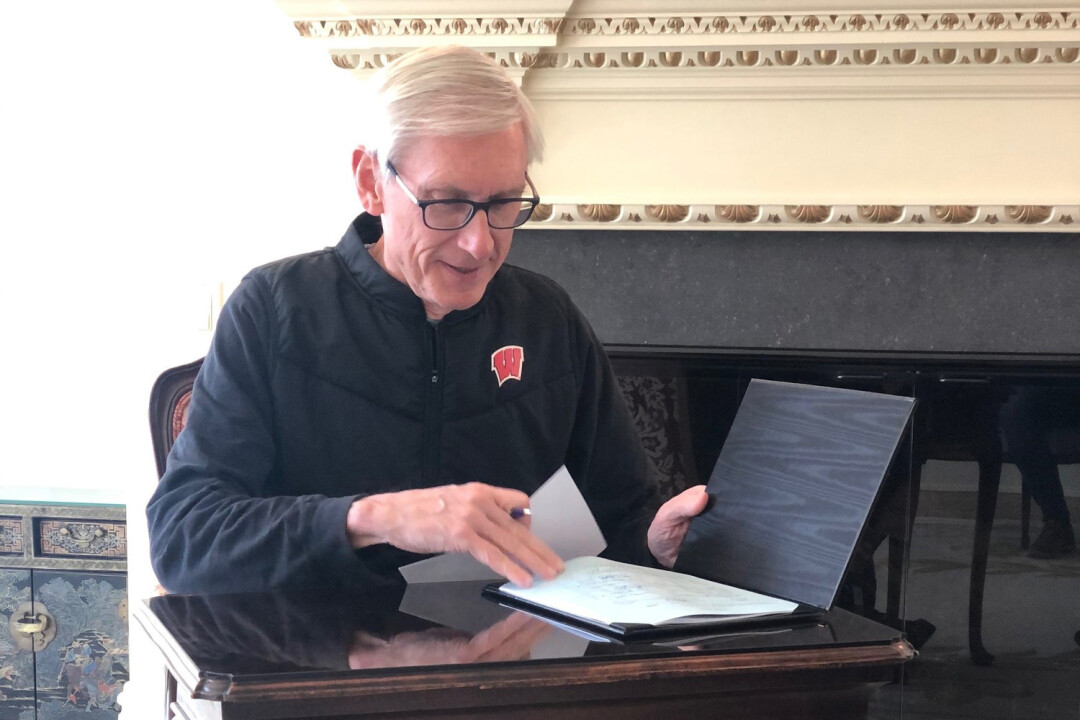Gov. Evers Signs COVID-19 Relief Bill, Says More Is Needed
legislation taps into up to $2 billion in federal relief funds
V1 Staff |

After a first virtual session of the state Legislature in Wisconsin history, both chambers approved a coronavirus relief bill that was swiftly signed by Democratic Gov. Tony Evers on Wednesday.
The bill will ensure that the state receives an estimated $2 billion in federal aid for addressing the pandemic. Among other things, the bill suspends a one-week waiting period for people seeking unemployment benefits, provides insurance protection for those with COVID-19, and allowed the state to access about $150 million per quarter for healthcare needs during the pandemic, the Journal Sentinel reported.
While Evers signed the bill, he told lawmakers in the Republican-dominated Legislature that it “falls short of what is needed to address the magnitude and gravity of what our state is facing.” Unlike a previous proposal by Evers, the bill would spend no new state funds, only tap into federal relief funds.
Evers continued: “This bill does not provide hazard pay or workers compensation for all frontline and critical workers like first responders, childcare providers, and healthcare workers who are risking their lives going to work every day. This bill lacks meaningful support for small businesses and farmers who are struggling to make ends meet and includes no additional investments in our businesses or farmers through WEDC’s successful 20/20 program.”
In a statement, Senate Majority Leader Scott Fitzgerald, R-Juneau, said the bill will allow the state to access federal COVID-19 relief funds funds and that it was created with suggestions from Democrats and Republicans.
“We have to get businesses and the economy moving again, and I’m hopeful that this bill marks the first step in that direction,” Fitzgerald said. “Those revenue streams support our schools, our social safety net, and our infrastructure.”
Here’s the full text of Evers’ statement about the bill:
Gov. Evers' Statement on Passage of COVID-19 Response Legislation
MADISON — Gov. Tony Evers today released the below statement following the Wisconsin State Senate’s passage of COVID-19 response legislation and sent a letter calling for the bill to be sent to his desk immediately.
“My pen has been waiting for weeks to sign legislation that guarantees Wisconsin will capture our fair share of federal dollars under the CARES Act and ensures workers experiencing unemployment and underemployment won’t be forced to wait an extra week for needed benefits to kick in. This bill is finally a step in the right direction, but there is much more work to be done.
“Although I remain concerned about what is missing from this legislation I have called for this bill to be sent over for my signature as soon as possible. The bill I will sign falls short of what is needed to address the magnitude and gravity of what our state is facing, but I am not willing to delay our state’s response to this crisis.
“This bill does not provide hazard pay or workers compensation for all frontline and critical workers like first responders, childcare providers, and healthcare workers who are risking their lives going to work every day. This bill lacks meaningful support for small businesses and farmers who are struggling to make ends meet and includes no additional investments in our businesses or farmers through WEDC’s successful 20/20 program.
“Our state is facing significant challenges as we respond to and prevent the spread of COVID19. The bottom line is that we have to do everything we can to keep our families, our neighbors, and our communities safe while also looking towards our economic recovery. People across our state are hurting. We have asked Wisconsinites to make sacrifices so we can keep them safe, and the Legislature needs to do their part.
“My administration has been working to do as much as we can to respond to COVID-19 but we need to have the flexibility and resources to be able to provide necessary support for the people of our state. It’s clear that more legislation will be needed to meaningfully address COVID-19 in Wisconsin and help workers, families, businesses, and farmers.”




















